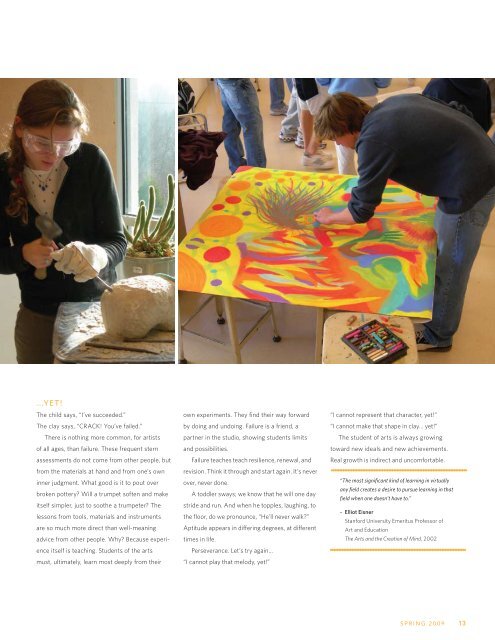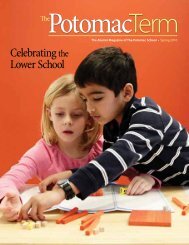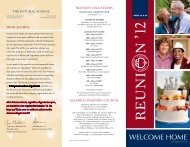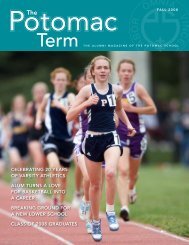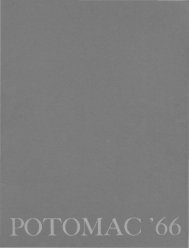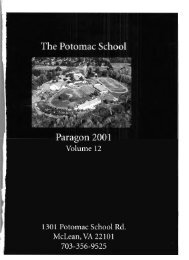Spring 2009 Potomac Term - Potomac School
Spring 2009 Potomac Term - Potomac School
Spring 2009 Potomac Term - Potomac School
Create successful ePaper yourself
Turn your PDF publications into a flip-book with our unique Google optimized e-Paper software.
...Yet!<br />
The child says, “I’ve succeeded.”<br />
The clay says, “CRACK! You’ve failed.”<br />
There is nothing more common, for artists<br />
of all ages, than failure. These frequent stern<br />
assessments do not come from other people, but<br />
from the materials at hand and from one’s own<br />
inner judgment. What good is it to pout over<br />
broken pottery? Will a trumpet soften and make<br />
itself simpler, just to soothe a trumpeter? The<br />
lessons from tools, materials and instruments<br />
are so much more direct than well-meaning<br />
advice from other people. Why? Because experience<br />
itself is teaching. Students of the arts<br />
must, ultimately, learn most deeply from their<br />
own experiments. They find their way forward<br />
by doing and undoing. Failure is a friend, a<br />
partner in the studio, showing students limits<br />
and possibilities.<br />
Failure teaches teach resilience, renewal, and<br />
revision. Think it through and start again. It’s never<br />
over, never done.<br />
A toddler sways; we know that he will one day<br />
stride and run. And when he topples, laughing, to<br />
the floor, do we pronounce, “He’ll never walk?”<br />
Aptitude appears in differing degrees, at different<br />
times in life.<br />
Perseverance. Let’s try again…<br />
“I cannot play that melody, yet!”<br />
“I cannot represent that character, yet!”<br />
“I cannot make that shape in clay… yet!”<br />
The student of arts is always growing<br />
toward new ideals and new achievements.<br />
Real growth is indirect and uncomfortable.<br />
“The most significant kind of learning in virtually<br />
any field creates a desire to pursue learning in that<br />
field when one doesn’t have to.”<br />
- Elliot Eisner<br />
Stanford University Emeritus Professor of<br />
Art and Education<br />
The Arts and the Creation of Mind, 2002<br />
<strong>Spring</strong> <strong>2009</strong> 13


